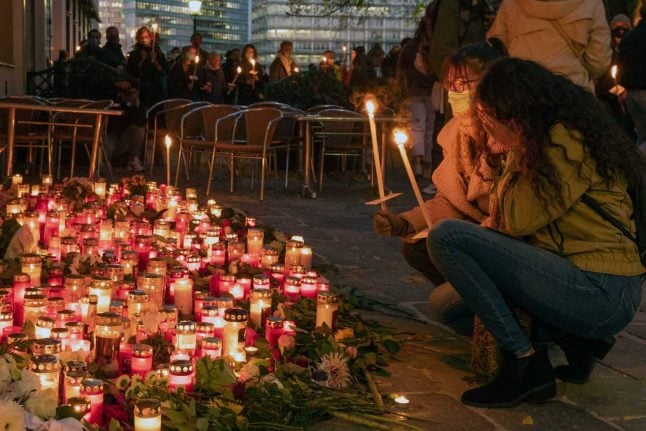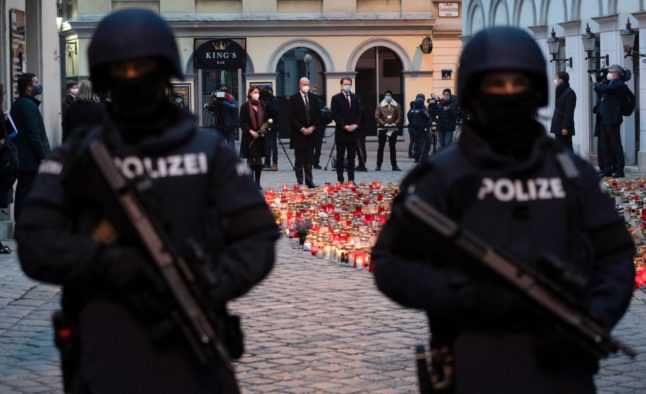The Austrian interior minister confirmed the prior convictions of the detained, with the investigation extending to Switzerland and a second, unnamed country.
In the wake of the attack in which an Austrian-born man shot and killed four people in a popular nightlife area of central Vienna on Monday night, police arrested a total of 16 men.
Four of them had been convicted for terrorism-related offences, two for violent crime offences, and two for an attempted “honour killing”, Interior Minister Karl Nehammer told a press conference Thursday.
“We have had intensive cooperation with the FBI,” which provided Austrian authorities with “valuable information”, Nehammer added, without giving further details.
The investigation has also led to Switzerland, where prosecutors have confirmed that two Swiss men aged 18 and 24 who were arrested Wednesday had already been the targets of criminal cases over terrorism offences.
Authorities in another country are also investigating “direct links to the perpetrator,” according to Nehammer, but added he wasn't able to name the country at this stage because of ongoing investigations.
Germany's Der Spiegel newspaper reported earlier this week that the Vienna attacker had made contact with German Islamists during an attempt to travel to Syria to join the Islamic State organisation.
Neighbouring countries were helping Austrian authorities as well as Europol, the European Union's law enforcement agency, which dispatched two agents to Vienna.
The shooting was the first major such attack in Austria for decades and the first blamed on a jihadist, whom authorities identified as 20-year-old Kujtim Fejzulai, a dual Austrian-Macedonian national who had also been convicted for trying to join IS in Syria.
After killing four people and injuring 22, including a police officer, Fejzulai was killed by a bullet that entered his body just below his left shoulder and pierced through his lung, authorities said.
'Failure of communication'
Security officials on Thursday also addressed criticism that they did not follow up on a warning from neighbouring Slovakia that Fejzulai had tried to buy ammunition there in July, about seven months after he was released on probation.
Though on Wednesday Nehammer admitted to “a failure of communication” when it came to alerting the justice ministry, Vienna police chief Gerhard Puerstl said the suspect was not initially clearly identifiable in photos sent from Slovakia.
On Thursday, hundreds came together to remember the victims in a candlelit vigil near the scene of the attack, including members of Jewish and Muslim youth organisations.
Earlier imams and rabbis, along with Vienna's Roman Catholic Cardinal Christoph Schoenborn, took part in a silent march past the scenes of the attack and prayed together for the victims.
More details have emerged in local media about those who were killed in the attack, the youngest of whom was a 21-year-old named as Nedzip V.
The other victims were a 24-year-old German student at Vienna's University of Applied Arts who was working as a waitress, a 39-year-old man and a 44-year-old woman.



 Please whitelist us to continue reading.
Please whitelist us to continue reading.
Member comments